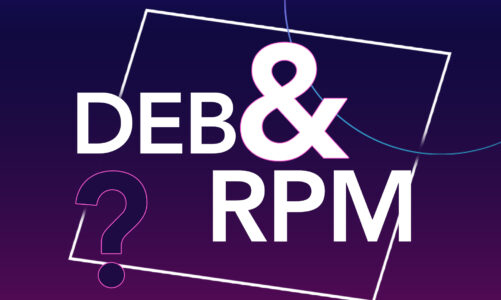Choosing the right operating system is crucial, whether you’re setting up a personal computer or running a large-scale server. Linux and BSD are two popular choices in the open-source world; both provide excellent stability, security, and performance. Nonetheless, there exist noteworthy distinctions between the two, which may render one more suitable for your requirements than the other.
Linux vs BSD always appears to be perplexing, not just for novices but also for proficient users. But only if you get to know the 9 valuable differences, and on top of that, the articles help you learn it with infographics. Let’s get to it right away.
Linux vs BSD: 9 Valuable Differences to Learn
Linux and BSD are two highly prevalent operating systems which find extensive utilization among individuals and corporations. These OS’s offer various features and functionalities, and understanding their differences is crucial in choosing the right system for your needs, and that’s what we are here for.
1: The definition and history
In 1991, Linus Torvalds released Linux, an open-source operating system that relies on the Linux kernel and follows the Unix-like operating system structure. It is free to use, modify and distribute and has a massive community of developers working on improving its features and functionality.
BSD, on the other hand, stands for Berkeley Software Distribution and was first developed at the University of California, Berkeley, in the 1970s. It includes several variants, such as FreeBSD, OpenBSD, and NetBSD, each with their unique features and architectures.
2: License
One of the significant differences between Linux and BSD is their licensing. The GNU General Public License (GPL) governs Linux, entailing that it can be employed, edited, and circulated freely. However, any adaptations or by-products must comply with the same licensing rules.
In contrast, BSD is licensed under a permissive license that permits users to alter and disseminate the code without encountering any constraints.
3: Packet management
Another significant difference between Linux and BSD is their filesystem and package management systems. Linux typically uses the Ext4 filesystem and relies on package managers like apt or yum to install and manage software packages.
In BSD, package management is done using a tool called pkg. Similar to package managers in Linux, pkg is employed to install, update, and uninstall software packages in addition to handling their dependencies.
4: Hardware Support
Linux and BSD both have excellent hardware support, with drivers available for most modern hardware. However, Linux has a more significant market share and a larger community of developers, which means that it often has better hardware support for newer devices.
BSD, on the other hand, has a more focused approach to hardware support, which means that it is often more stable and reliable for older hardware.
5: Graphical support
Linux is known for having a wide range of graphical interfaces or desktop environments, such as GNOME, KDE, and Xfce, among others. These desktop environments equip users with a graphical user interface (GUI) that allows them to interact with the operating system, such as managing files, launching applications, and personalizing settings.
BSD systems typically have a more minimalistic approach to graphical support. The window managers provide basic functionality, such as window management but do not offer the same level of customization as desktop environments in Linux.
6: Performance
In terms of performance, Linux generally has better performance than BSD in terms of raw processing power and memory management. Linux’s larger community of developers and users also means that it benefits from a wider range of hardware support and optimization tools. However, BSD’s simplicity and reliability can make it more suitable for certain tasks, such as serving as a firewall or providing network services.
7: Software availability
Linux is known for having a vast amount of software available, both in terms of quantity and variety. It has a wide range of software repositories, including official repositories maintained by distribution maintainers and community repositories maintained by users.
While BSD systems do have software repositories and package managers, they typically have a more limited selection of software packages. Additionally, some software that is available for Linux may not be available for BSD due to compatibility issues or a smaller user base.
8: Security
Both Linux and BSD are known for their security features, and both operating systems have a strong focus on security. Nonetheless, there exist some disparities in their security approach.
Linux has a reputation for being less secure than BSD because it is a more popular operating system, which makes it a bigger target for attackers. However, Linux uses a set of security frameworks, such as AppArmor or SELinux, to control access to system resources and enforce security policies.
BSD has a more minimalist approach to security, focusing on building a secure base system that is resistant to common attacks. Furthermore, it encompasses numerous built-in security mechanisms, like OpenSSH, that furnish outstanding safeguarding against network-based assaults.
9: Community
Linux has a larger and more diverse community than BSD, which can be attributed in part to its popularity.
The Linux community comprises developers and users from various regions of the world who participate in the progression and enhancement of the operating system. Linux also has a large number of distributions, which are different versions of Linux that are tailored to specific use cases or user preferences.
BSD features a smaller yet devoted community of developers and users, signifying a more concentrated approach to development and support. It also offers exceptional documentation and resources primarily aimed at system administrators and security experts.
Conclusion
Choosing between Linux and BSD can be a challenging decision, as both have their strengths and weaknesses. Linux is known for its excellent performance and community support, while BSD is known for its stability, security, and reliability. Nevertheless, the 9 valuable differences will help you learn and make the best choice.



